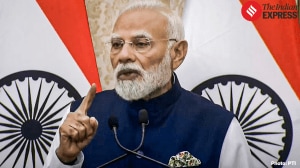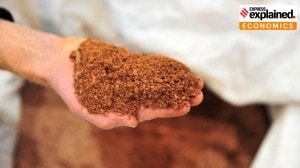Rate reaction: Firms up overseas borrowings
With domestic interest rates showing signs of hardening in the near future, India Inc’s CFOs are increasingly looking at international ...

With domestic interest rates showing signs of hardening in the near future, India Inc’s CFOs are increasingly looking at international markets to garner funds. With the long-term (one year and above) LIBOR ruling at a comfortable 2.25 per cent, domestic firms are changing the mix of long-term fund requirements in favour of external borrowings.
There are caveats, of course: the rupee continues to be volatile against the US dollar, with the exchange premium threatening to breach the current 2 per cent. And US interest rates could go up further after the elections. Estimates are that at most the rates would perk up by 25 basis points, or 0.25 per cent.
As things stand, triple A rated companies can get 1 year and above funds from the global market at 5 per cent to 5.75 per cent. Domestically, funds for the same tenure cost 6 per cent to 6.5 per cent. “In the present situation, it is worthwhile to look at the international market for long-term funds,’’ says P Sugavanam, director (finance) and acting CMD of IOC.
While ICICI Bank recently decided to raise $1 billion from the overseas markets, a host of companies — Reliance ($250 million), Tata Motors ($400 million), Ashok Leyland ($100 million), Zee Telefilms ($100 million), Bharti ($115 million) and M&M ($130 million) — have already stuffed their ECB kitty this year. In fact, an analysis of CMIE data for overseas borrowings by corporates in the first nine months of 2003-04 shows that Indian companies are relying more on external funds compared to the corresponding period of the previous year.
The rise in domestic cost of borrowings seems imminent. According to Tarini Vaidya, head of treasury in Centurion Bank, “We do not foresee a significant rise in interest rates for retail loans, although there may be some increase in the overall cost of funds for corporate borrowers.”
Arvind Parakh, director (finance) of Jindal Stainless, which mopped up Rs 142.14 crore as external borrowings in 2003, says that for the long-term companies should mix domestic and international borrowings in the ratio of 40:40. “ The remaining 20 per cent should be short-term borrowings in the domestic market since the LIBOR is ruling high — 3.6 per cent for 3 months — in the short term.
According to IDBI’s executive director A K Doda, “We feel that the government will take a call on inflation, which, in turn, might help to keep interest rates down. Though I do not see any mass movement by corporates towards ECBs and external borrowings, most of them would now go in for a mix”, he added.





- 01
- 02
- 03
- 04
- 05








![Kadapa, [Andhra Pradesh], 27 May (ANI): Andhra Pradesh Chief Minister N Chandrababu Naidu and state Minister Nara Lokesh in conversation during the Telugu Desam Party's (TDP) annual three-day Mahanadu conclave, in Kadapa on Tuesday. (ANI Photo)](https://images.indianexpress.com/2025/05/tdp.jpg?w=300)

















